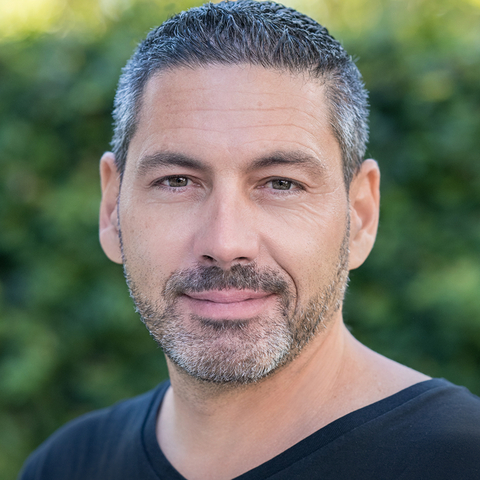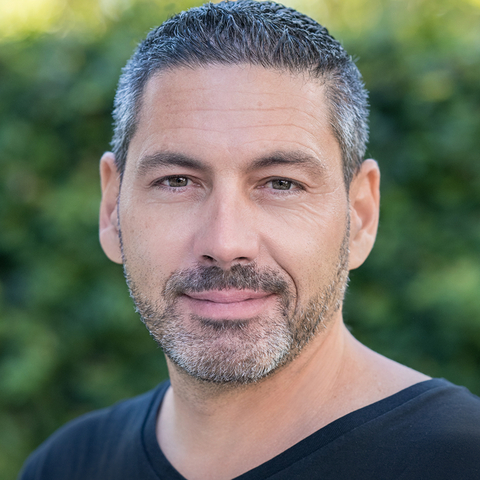DUBLIN, Calif.--(BUSINESS WIRE)--AEye, Inc. (NASDAQ: LIDR), the global leader in adaptive, high-performance lidar solutions, today announced that CTO and founder Luis Dussan has been named one of Business Insider’s Self-Driving Power Players of 2022. The annual list honors mobility and technology company visionaries that are helping to drive the industry into the future, fostering the next generation of talent and making waves in the autonomous vehicle space.
Dussan was recognized for his technology leadership in developing the industry’s first software-definable platform that utilizes lasers (lidar) to complement radar and cameras – allowing vehicles to better understand their environment. This unique adaptive lidar solution is able to dynamically focus without losing situational awareness, allowing it to collect and process critical information that matters most for the advancement of safe, reliable vehicle autonomy. In addition to selling directly to industrial markets, including mining, rail and agriculture, AEye is starting to penetrate the consumer automotive market through one of the largest Tier 1 suppliers, Continental, which has licensed AEye’s reference architecture to build its own long-range lidar product for automotive OEMs, the HRL131, scheduled for start of production in 2024.
“I’m honored to be named among the top Power Players in the self-driving space by Business Insider,” said Dussan. “This recognition underscores our mission at AEye to create the highest performing sensing and perception system that answers even the most challenging of situations, resulting in the highest levels of safety for autonomous driving – ultimately a vision for a safer future.”
Dussan founded AEye in 2013 to help solve the biggest bottleneck to the safe commercialization of autonomous vehicles: perception. A leading technologist from NASA, Lockheed Martin and Northrop Grumman responsible for designing mission-critical targeting systems for fighter jets, Dussan realized that self-driving vehicles, like fighter jets, needed to see, classify, and respond to objects in real-time, and before it was too late. He leveraged his aerospace and defense engineering background, and his deep experience and training in optics, photonics and quantum physics to develop a robotic vision system that uniquely mimics the human visual cortex – focusing on the most critical information in a scene as it scans. The key was to understand the difference between information quality and data quantity and the detrimental effects of latency in the information chain.
This effort resulted in AEye’s award-winning 4Sight™ Intelligent Sensing platform, which utilizes adaptive lidar to improve the probability of detection and accuracy of classification – complementing existing sensors and increasing the speed and accuracy of decision-making. This laser-based sensing system, which is the only platform of its kind on the market that has had its performance independently verified by a reputable third-party testing lab, serves as a foundation for advancements in the creation of software-definable cars.
Dussan’s invention, with its modular system design and software programmability, has enabled a cycle of innovation that is rippling across industries. A single AEye lidar system can be optimized for multiple markets, driving innovation that improves both performance and cost, while accelerating technology adoption. In addition, AEye’s software foundation is serving to support and future-proof customer business models, giving customers the ability to update software to change the way a vehicle works – driving the future of transportation and mobility.
About AEye
AEye’s software-defined lidar enables advanced driver-assistance, vehicle autonomy, and industrial applications that save lives and propel the future of transportation and mobility. The company's 4Sight™ Intelligent Sensing Platform uses adaptive lidar to focus on what matters most: enabling faster, more accurate and reliable perception for dynamic applications ranging from autonomous driving to intelligent infrastructure, which require precise measurement imaging to ensure safety and performance. The company was founded in 2013 and is based in the San Francisco Bay Area.
Forward-Looking Statements
Certain statements included in this press release that are not historical facts are forward-looking statements within the meaning of the federal securities laws, including the safe harbor provisions under the United States Private Securities Litigation Reform Act of 1995. Forward-looking statements are sometimes accompanied by words such as "believe," "continue," "project," "expect," "anticipate," "estimate," "intend," "strategy," "future," "opportunity," "predict," "plan," "may," "should," "will," "would," "potential," "seem," "seek," "outlook," and similar expressions that predict or indicate future events or trends, or that are not statements of historical matters. Forward-looking statements are predictions, projections, and other statements about future events that are based on current expectations and assumptions and, as a result, are subject to risks and uncertainties. Forward looking statements included in this press release include statements about AEye’s products and business plan, the use of lidar generally, the functionality of lidar, and the adoption of AEye’s products, among others. These statements are based on various assumptions, whether or not identified in this press release. These forward-looking statements are provided for illustrative purposes only and are not intended to serve as and must not be relied on by an investor as a guarantee, an assurance, a prediction, or a definitive statement of fact or probability. Actual events and circumstances are very difficult or impossible to predict and will differ from the assumptions. Many actual events and circumstances are beyond the control of AEye. Many factors could cause actual future events to differ from the forward-looking statements in this press release, including but not limited to: (i) the risks that our solution will be unable to collect and process critical information that matters most for the advancement of safe and reliable vehicle autonomy; (ii) the risks that we will be unable to sell directly to industrial markets, including, mining, rail, and agriculture, in sufficient quantities, or at all; (iii) the risks that we will be unable to meaningfully penetrate the consumer automotive market; (iv) the risks that Continental will successfully launch a long-range lidar product for automotive OEMs in 2024, or at all; (v) the risks that we will be unable to create, mass produce, or sell the highest performing sensing and perception system available in the marketplace; (vi) the risks that our products will not be capable of answering the most challenging of situations, nor be able to provide the highest levels of safety for autonomous driving; (vii) the risks that our products will not sufficiently be able to mimic the human visual cortex nor focus on the most critical information in a scene; (viii) the risks that our product will be unable to sufficiently improve the detection and accuracy of object classification; (ix) the risks that our products will not be sufficient to serve as a foundation for the advancements in the creation of software-definable cars; (x) the risks that our product will not be capable of being optimized for multiple markets, nor sufficiently drive innovation, significantly improve performance or costs, or accelerate technology adoption; (xi) the risks that our products will not sufficiently permit software updates and therefore not support future-proofing of our customers’ business models; (xii) the risks that Tier 1 suppliers will not be the preferred or optimal conduit to effectively bring lidar-enabled safety features to market at scale, or at all; (xiii) the risks that automakers will not deploy autonomous features, like highway autopilot or hub-to-hub trucking, consistent with the Company’s timeline, or at all; (xiv) the risks that we will be unable to deliver world leading performance to our customers as quickly as anticipated, or at all; (xv) the risks that we will be able to successfully launch products into the market, or at all; (xvi) the risks that our relationship with the Tier 1 value chain and our go-to-market channel strategy will result in the development of a product for the automotive market that meets the expectations of customers, or at all; (xvii) the risks that lidar adoption occurs slower than anticipated or fails to occur at all; (xviii) the risks that adoption of software-defined lidar occurs slower than anticipated, or fails to occur at all; (xix) the risks that laws and regulations are adopted impacting the use of lidar that we are unable to comply with, in whole or in part, changes in competitive and regulated industries in which we operate, variations in operating performance across competitors, and changes in laws and regulations affecting our business; (xx) the risks that we are unable to adequately implement our business plans, forecasts, and other expectations, and identify and realize additional opportunities; and (xxi) the risks of downturns and a changing regulatory landscape in the highly competitive and evolving industry in which we operate. These risks and uncertainties may be amplified by the COVID-19 pandemic, including the Delta, Omicron, Deltacron, and future variants, which has caused significant economic uncertainty. The foregoing list of factors is not exhaustive. You should carefully consider the foregoing factors and the other risks and uncertainties described in the "Risk Factors" section of the Quarterly Report on Form 10-Q that AEye filed with the U.S. Securities and Exchange Commission (the "SEC") and other documents filed by AEye or that will be filed by AEye from time to time with the SEC. These filings identify and address other important risks and uncertainties that could cause actual events and results to differ materially from those contained in the forward-looking statements. Forward-looking statements speak only as of the date they are made.
Readers are cautioned not to put undue reliance on forward-looking statements; AEye assumes no obligation and does not intend to update or revise these forward-looking statements, whether as a result of new information, future events, or otherwise. AEye gives no assurance that AEye will achieve any of its expectations.




